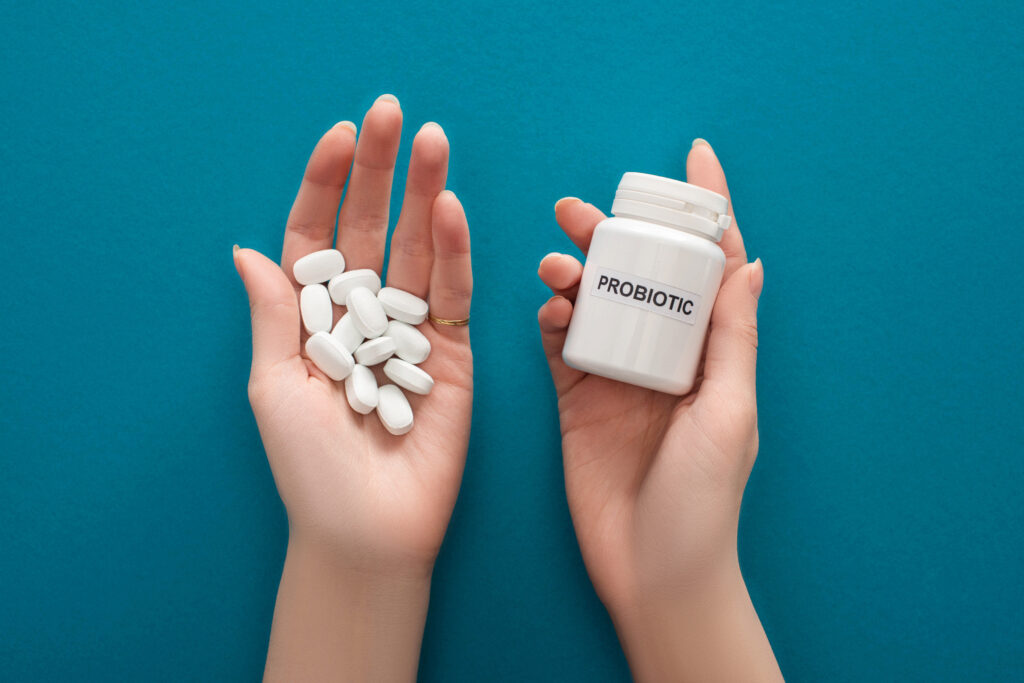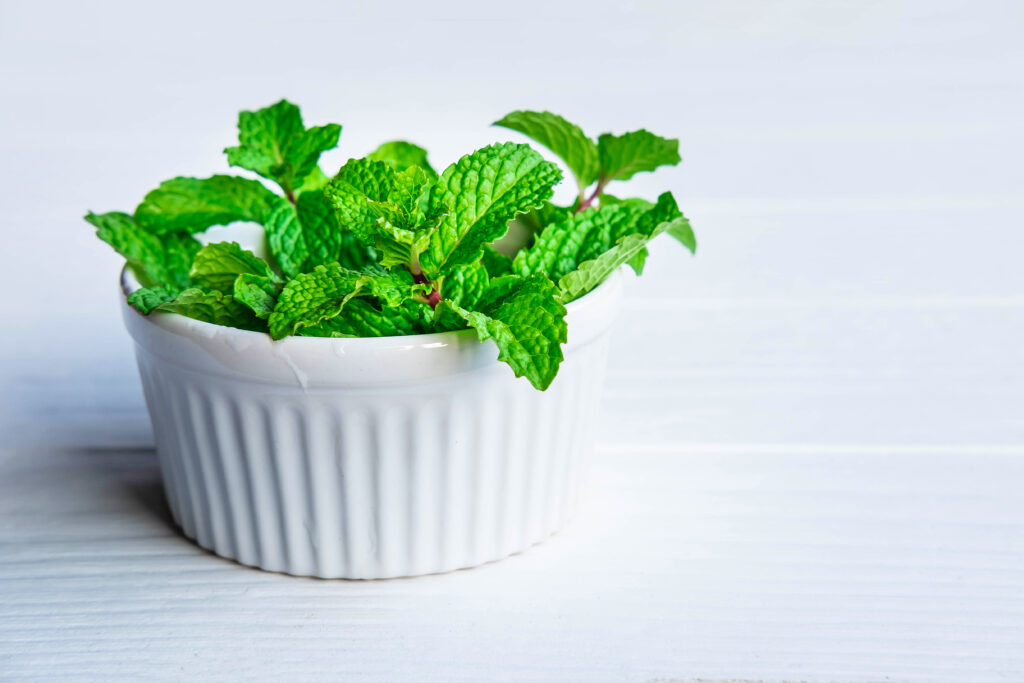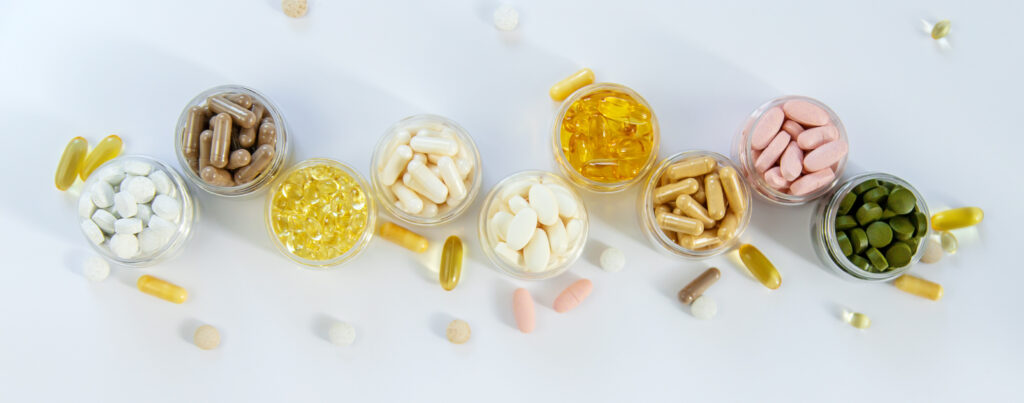
Quick links to the important topics we’ll cover:
5 Best Supplements for Bloating
Diet vs Supplements for Bloating
Bloating is the worst! Yes, there are supplements for bloating that can help make you feel better, but really we should all be aiming for a naturally regulated gut that isn’t prone to bloating. Then we wouldn’t need the supplements at all!
Let’s go through how you can improve your gut health, reduce bloat, and yes, go through the best supplements for bloating.
Bloating is a common and uncomfortable digestive issue that can leave you feeling gassy, swollen, and downright miserable. While there are various causes of bloating, including dietary choices and underlying health conditions, supplements can offer valuable support in alleviating this discomfort. In this blog post, Let’s explore the top 5 supplements for bloating and how they work to not only relieve immediate symptoms but also contribute to overall gut health.
5 Best Supplements for Bloating
Probiotics – the friendly bacteria that reside in your gut, playing a crucial role in maintaining a balanced digestive system. They help break down food, absorb nutrients, and keep harmful bacteria in check. When your gut’s bacterial balance is disrupted, it can lead to bloating and digestive discomfort. Taking a daily probiotic supplement can help replenish and maintain a healthy gut microbiome, reducing bloating in the process.
How Probiotics Work for Bloating: Probiotics promote a balanced gut environment, which can prevent the overgrowth of gas-producing bacteria and improve overall digestion.

Digestive Enzymes – These enzymes are naturally produced by your body to break down food into smaller, more easily digestible molecules. When your body doesn’t produce enough digestive enzymes, it can lead to incomplete digestion, gas, and bloating. Supplementing with digestive enzymes can help enhance your body’s ability to break down carbohydrates, proteins, and fats, reducing the likelihood of bloating.
This type of supplement is less common, but gaining popularity. There is a lot to this, and there is a fantastic article over at Hopkins Medicine. For this supplement in particular, you should discuss with your doctor how to approach it.
How Digestive Enzymes Work for Bloating: Digestive enzymes aid in the complete breakdown of food, reducing the production of undigested particles that can lead to gas and bloating.
Peppermint Oil – This supplement has long been used as a natural remedy for digestive discomfort, including bloating. It contains compounds like menthol that relax the muscles of the gastrointestinal tract, helping to relieve spasms and reduce gas buildup. Peppermint oil supplements are a convenient way to harness the digestive benefits of this herb.
How Peppermint Oil Works for Bloating: Peppermint oil’s muscle-relaxing properties can ease the tension in your gut, allowing gas to pass more easily and alleviating bloating.

Ginger – This is another natural remedy with a long history of use in digestive health. It contains bioactive compounds like gingerol, which have anti-inflammatory and soothing effects on the digestive system. Ginger supplements or ginger tea can help reduce bloating by calming the digestive tract and promoting regular bowel movements.
How Ginger Works for Bloating: Ginger’s anti-inflammatory properties can help soothe an irritated digestive system, while its pro-motility effects can aid in moving gas through the intestines.
Fennel Seeds – have been used for centuries to ease digestive discomfort, including bloating and gas. They contain compounds like anethole, which have carminative properties, meaning they help expel gas from the digestive tract. Fennel seed supplements or fennel tea can be effective in reducing bloating after meals.
Fennel Tea, especially when combined with coriander and cumin, makes a delicious and invigorating refreshment that can really help your overall feelings of health, not just in your gut. In Ayurveda they have been using Fennel tea for centuries to help all kinds of wellness issues. Here is a great write up from The Ayurveda on The Health Benefits of Fennel Tea.
How Fennel Works for Bloating: Fennel seeds can relax the muscles in your gastrointestinal tract, allowing trapped gas to escape and relieving bloating.
Vitamins for Bloating

It’s not just supplements that can help! Vitamins, both those in your diet and those you may supplement with can help improve your gut health and your propensity to bloat.
It works the other way too…Reducing stomach bloating can often be linked to improving overall digestive health.
While vitamins alone may not be a direct solution to bloating, they play essential roles in maintaining a healthy digestive system. Here are the top 5 vitamins that can indirectly help reduce stomach bloating and explanations of how they work.
Top 5 Vitamins for Bloating
Vitamin B Complex (B1, B2, B3, B6, B12, etc.) – B vitamins play a crucial role in metabolism and energy production. They help your body break down carbohydrates, proteins, and fats, which are essential for proper digestion. Additionally, B vitamins support the health of the nervous system, which can help regulate digestive processes.
How B Vitamins Help Bloating: When your body efficiently metabolizes these nutrients, it can reduce the likelihood of undigested food particles causing gas and bloating.
Vitamin D: This important vitamin is known for its role in calcium absorption and bone health. However, it also influences the gut microbiome, helping to maintain a balanced environment in your digestive tract. A healthy gut microbiome is essential for proper digestion, as an imbalance can lead to bloating and other digestive issues.
How Vitamin D Helps Bloating: Because Vitamin D influences the gut microbiome – even indirectly – it plays a role in a healthy digestive tract, which will not be as prone to bloating.
Vitamin C: Vitamin C is an antioxidant that supports the immune system and helps the body absorb iron from plant-based foods. While it doesn’t directly alleviate bloating, a strong immune system can help prevent infections that may lead to digestive discomfort. Additionally, improving iron absorption can aid in overall gut health.
How Vitamin C Helps Bloating: Like Vitamin D, this most-popular vitamin doesn’t directly help prevent bloating. But because of its profound influence on so many bodily systems, it makes the list.
Vitamin E: Vitamin E has antioxidant properties that help protect cells in the digestive tract from damage caused by free radicals. By reducing inflammation and oxidative stress in the gut, vitamin E indirectly contributes to a healthier digestive system, potentially reducing the risk of bloating.
How Vitamin E Helps Bloating: This vitamin is very important to reducing inflammation and stress, which is a huge factor in conditions ripe for bloat.
Vitamin A: Vitamin A is essential for maintaining the health of the mucous membranes that line the digestive tract. These membranes play a role in nutrient absorption and protecting the gut from harmful substances. Ensuring an adequate intake of vitamin A can help maintain the integrity of these membranes and support overall digestive health.
How Vitamin A Helps Bloating: Anyone who had has colitis and a colonoscopy has discussed the mucosal lining of the gut with their doctor. This important vitamin plays a key role in keeping that lining healthy, and again indirectly contributes to a non-bloaty gut.
Vitamins or Diet for Bloating?
It’s important to note that while these vitamins can be beneficial for digestive health, they are most effective when obtained through a balanced diet. Whole foods like fruits, most vegetables, lean proteins, and some dairy products are excellent sources of these vitamins.
Beware, however, that some foods, especially wheat and some dairy, can cause all kinds of inflammatory processes and cause considerable problems with bloat. Same thing goes for added sugar.
I’d even go out on a limb and say that if you did not eat wheat or added sugar for a month, within 3 days your bloating would be gone, and you wouldn’t have a glimmer of it until you started back in on the inflammatory foods.
Key Point: If you suspect that your stomach bloating is a chronic issue, it’s essential to consult a healthcare professional to rule out any underlying medical conditions and receive personalized advice on managing your digestive health.
Bloating can be a frustrating and uncomfortable experience, but with the right supplements and vitamins, you can find relief and promote better gut health.


 spartaworks
spartaworks  September 5, 2023
September 5, 2023